Sandra Peter and Kai Riemer
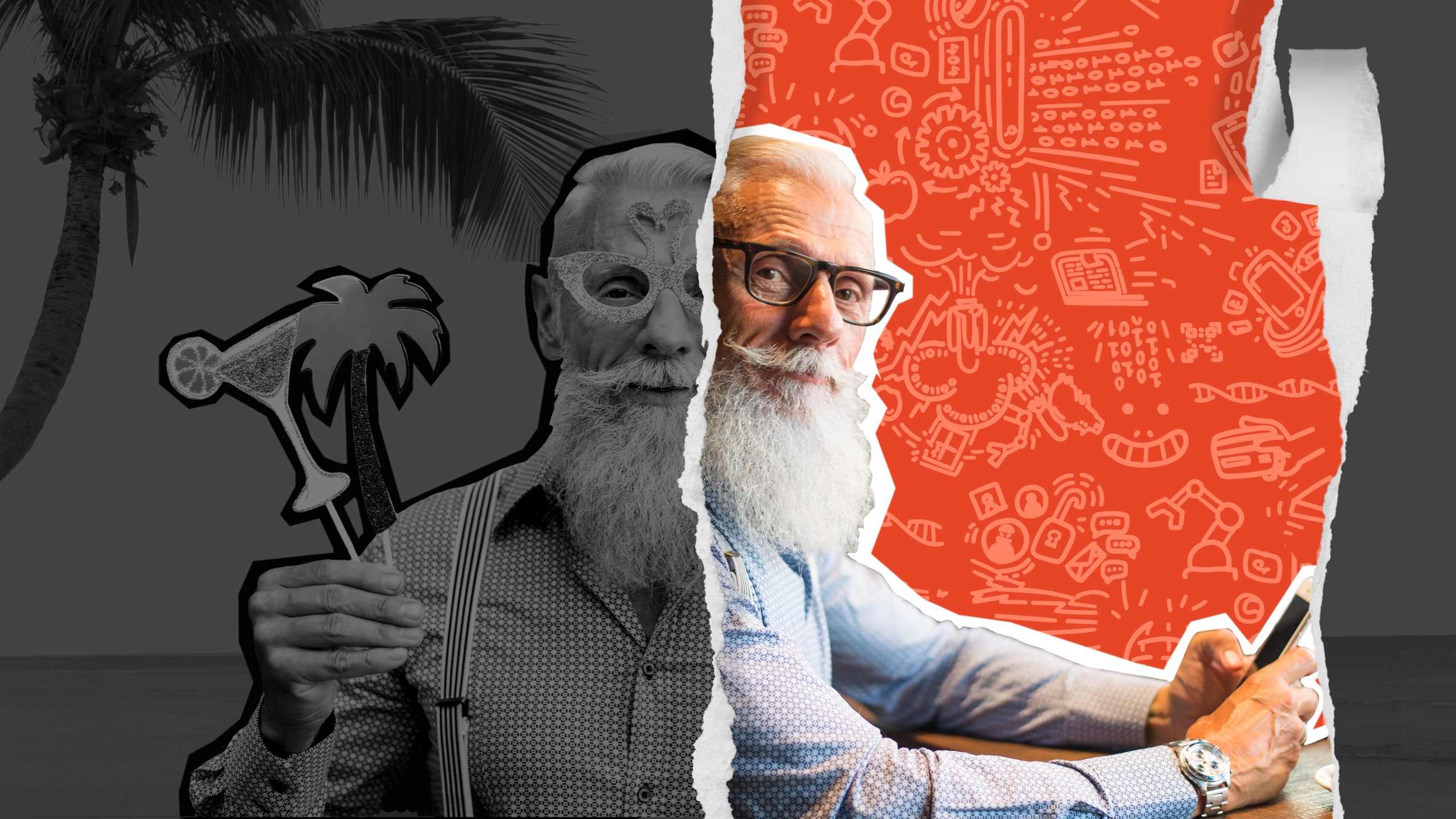
Why you should never retire: unlearn retirement
We discuss why collecting that gold watch and retiring at 65 might not be the best thing and why it’s time to change the retirement narrative.
A lot has changed since Otto von Bismark invented retirement in 1883: we live much longer, more and more of us do knowledge work, and the latest research shows that our brains don’t actually decline as we get older. Could retirement be making us worse off mentally, physically, financially? What if it’s also bad for the economy? We hear from psychiatrists, former Prime Ministers, linguists, retirees, academics, engineers and advocates, and discuss what can be done to unlearn retirement.
Join Sandra Peter and Kai Riemer on the latest episode of The Unlearn Project.
The interesting people we spoke with
Ian Hickie
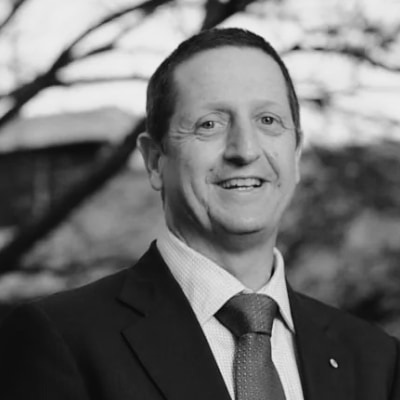
Ian Hickie is Professor of Psychiatry and Co-Director, Health and Policy at The University of Sydney’s Brain and Mind Centre. He is an NHMRC Senior Principal Research Fellow, was an inaugural Commissioner on Australia’s National Mental Health Commission and was the first CEO of Beyond Blue. He is also the co-author of Minding Your Mind and the author of upcoming book, The Devil You Knew.
Malcolm Turnbull
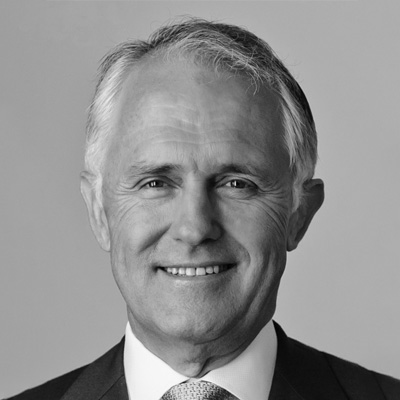
Malcolm Turnbull was the 29th Prime Minister of Australia and served as the Member for Wentworth for over 13 years. Prior to entering politics, he enjoyed successful careers as a lawyer, investment banker and journalist. Since leaving politics (but not retiring), he is enjoying a successful career as a grandfather, business leader, and global speaker.
Jakelin Troy
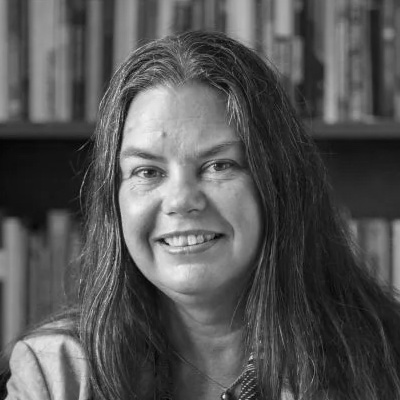
Jakelin Troy is Professor of Linguistics and Director, Aboriginal and Torres Strait Islander Research at the University of Sydney. Her current research looks at documenting, describing and reviving Indigenous languages and she is Chief Investigator for two Australian Research Council Discovery Projects.
Sue Finley
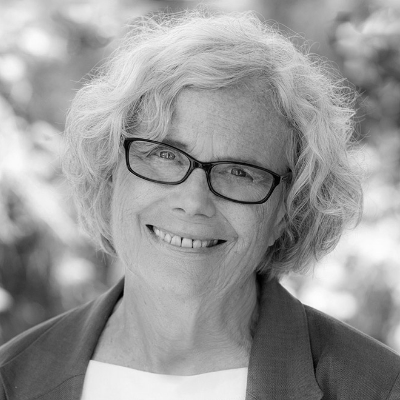
Sue Finley is a Subsystem Engineer at NASA’s Jet Propulsion Lab (JPL). She has worked at JPL since 1958 in multiple roles starting as a human computer and has no plans to retire soon. Her recent missions include the New Horizons flyby of Pluto and the Juno investigation of Jupiter. Sue currently works on JPL’s contributions to the NASA Deep Space Network, a global collection of satellites for tracking spacecraft. You might also remember her from unlearning computers!
Allan Fels

Allan Fels is a Professorial Fellow at the Melbourne Law School, Patron of Mental Health Victoria and Chair of the Haven Foundation. In addition to his academic career, he has served as the inaugural Chair of the Australian Competition and Consumer Commission, the co-chair of the OECD Trade and Competition Committee and Foundation Dean of the Australia and New Zealand School of Government.
Susan Thorp

Susan Thorp is Professor of Finance and Associate Dean, Research at the University of Sydney Business School. She has devoted her career to understanding life cycle finance, with particular emphasis on individual financial decision making and has published over 45 papers in international academic journals.
Scott Santens
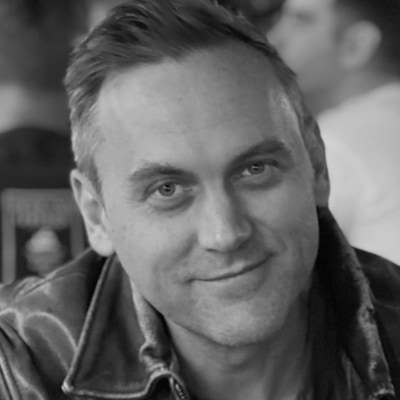
Scott Santens is the Senior Advisor for Humanity Forward and serves on the board of directors of the Gerald Huff Fund for Humanity. He has been researching and advocating for the concept of Universal Basic Income since 2013 and has put that into practice by living with a basic income floor via Patreon donors since 2016.
Links for the curious
How retirement was invented by German Chancellor Otto von Bismarck in 1883
The 1898 British Government’s report on the horrific injuries and deaths of factory workers
Global life expectancy over time from the World Bank
The AIHW’s 2022 report on life expectancy for Australians
2005 data from the US Bureau of Labor Statistics showing the shift from manual labour in the US
The Brain and Mind Centre at the University of Sydney
NASA’s Europa Clipper mission, set to launch in 2024
2006 NBER research paper on the effects of retirement on physical and mental health
Katsuya Oi’s 2022 research paper, Would It Kill You to Retire?
2019 data on Australian women retiring with 23% less superannuation than men
Our 2019 discussion with Susan Thorp on the future of retirement
The World Health Organisation’s 2021 Global Report on Ageism
Ashton Applewhite’s 2017 TED Talk on ending ageism
Gallup’s 2022 State of the Global Workplace report
Our infographic summarising the arguments for and against Universal Basic Income (UBI)
Scott Santens’ answers to frequently asked questions on Universal Basic Income
Our 2022 discussion with Scott Santens on the future of UBI and the impact of the pandemic
Timewise’s 2022 Flexible Jobs Index
The Reform for Resilience Commission Co-Chaired by Malcolm Turnbull
ABC Radio National’s 2014 interview with Dr Elisabeth Kirkby, Australia’s oldest PhD
You can follow The Unlearn Project on Apple Podcasts, Spotify, Google Podcasts, Podcast Addict, Overcast, Pocket Casts, Stitcher, or wherever you get your podcasts.
You can follow Sydney Business Insights on Flipboard, LinkedIn, Twitter and WeChat to keep updated with our latest insights.
You should also check out our weekly podcast The Future, This Week unpacking the news that’s changing the future of business.
Is there something you think we need to unlearn? Send your ideas to sbi@sydney.edu.au. We read your emails.
Music by Cinephonix and the Open Goldberg Variations
Dr Sandra Peter is the Director of Sydney Executive Plus at the University of Sydney Business School. Her research and practice focuses on engaging with the future in productive ways, and the impact of emerging technologies on business and society.
Kai Riemer is Professor of Information Technology and Organisation, and Director of Sydney Executive Plus at the University of Sydney Business School. Kai's research interest is in Disruptive Technologies, Enterprise Social Media, Virtual Work, Collaborative Technologies and the Philosophy of Technology.
Share
We believe in open and honest access to knowledge. We use a Creative Commons Attribution NoDerivatives licence for our articles and podcasts, so you can republish them for free, online or in print.
Transcript
Voiceover Beaches, sailing, sunsets, peaceful times, fun times, family times.
Sandra Kai, what's going on? Are we in an ad?
Kai Sounds like it, but what is it for?
Voiceover Stop working and start living. Invest in your golden future.
Kai You know what, Sandra, I think we're in one of those superannuation ads. You know, the ones that make retirement sound like bliss, like, you know, that never ending summer holiday.
Voiceover Retirement, it's your time.
Sandra Are you thinking of retiring?
Kai Actually, it looks quite nice, I could get into sailing.
Sandra No, Kai, no, it's a trap.
Voiceover Lead a better life, tomorrow.
Voiceover Not brought to you by the superannuation industry, the tourism sector and definitely not from swimwear companies.
Kai We've all seen these ads with blissfully retired people happily sailing into the sunset.
Sandra But what if the story we've been sold about the joys of the retired life is not quite true? What if the golden age of retirement is not so shiny in real life? What if retirement is actually bad for us financially, physically, mentally?
Kai So do we need to unlearn retirement?
Sandra I think we do. We'll talk to a range of "unretiring" experts including Professor Ian Hickie, one of Australia's leading mental health experts.
Ian Hickie I think this whole idea of the work life followed by the enjoyable retired life, if you were still physically able to do it, or cognitively capable, is a terribly outmoded idea, but worse than that, it's really bad for your health. And in particular, it's bad for your cognitive and mental health. You should never retire.
Sandra Former Prime Minister Malcolm Turnbull, who has a very distant view of retirement.
Malcolm Turnbull Well, I mean, I think, you know, I'm not the retiring type. I think the important thing, however, is to always try to maintain a diversity of interests. I mean, I think this is where Ian Hickie and I both agree on this. I mean, obviously, he knows what he's talking about and I'm an amateur.
Sandra Indigenous linguist, Professor Jakelin Troy, who says First Nations people don't even have a word for retirement.
Jakelin Troy We say gammon in Aboriginal English, it's nonsense. For start, culturally, it doesn't really exist in Indigenous communities worldwide. I think that the idea of retirement is very much something that should be retired.
Kai And we chat with NASA engineering legend, 86-year-old Sue Finley, who has very good reasons to stay away from retirement.
Sue Finley I love my work, why should I retire? I can still travel and I really hate housework.
Sandra I'm Sandra Peter.
Kai I'm Kai Riemer.
Sandra Welcome to The Unlearn Project.
Sandra For most of history, there's been no such thing as retirement.
Ian Hickie Retirement's a really late 19th century concept. The historical approach to retirement is, you do jobs your whole life, you don either like or they're physically draining, and then you die. And nothing good happened in the meantime.
Sandra Retirement's a creation of the Industrial Revolution.
Kai In fact, it was created by German Chancellor Otto von Bismarck in 1883.
Sandra So are Germans to blame for retirement too?
Kai No comment. But, Otto von Bismarck pick the age of 65, which in many countries is pretty much still the retirement age. And he picked it because he knew that almost no one would live past that age.
Sandra And von Bismarck was right, work back then was hard and dangerous and really took its toll on people. There's a British government report from 1898 listing the horrific ways that thousands of workers in factories were killed or injured in that year alone.
Kai Like what?
Sandra Well the report lists some disturbing categories, hot liquid or molten metal or other substance in vat or pan…
Kai What?
Sandra Explosion.
Kai Ouch.
Sandra Escape of gas, steam or metal. Moved by mechanical power.
Kai Well, that's no good.
Sandra Oh, but wait, there's more. Scalds, burns and injuries from materials, structure and hand tools.
Kai Are we having too much fun with this?
Sandra Well, clearly these people were not having any fun with this.
Kai Well, you can understand how these people would have to retire from these jobs, if they even made it to 65. And these were just factories, right? Imagine mines and metalworks.
Sandra Well, a lot has changed since that. Eventually, governments passed laws requiring better safety measures, healthcare improved, work shifted from manufacturing to service industries.
Kai And yet von Bismarck's retirement age is firmly baked into our policies. The majority of people are still retiring by 65. In fact, only 15% of Australians over 65 are still in the workforce.
Sandra So for all these changes, for most of us, life is still divided into these three phases – we study, we work, we retire.
Kai Yeah, and then we die.
Sandra Well that's cheerful. But, seriously, a lot has changed since von Bismarck's time, there are at least three things that should make us rethink retirement, we live longer, our work has change
Kai We do a lot more knowledge work.
Sandra And the latest research shows that our brains don't actually decline as we get older.
Kai So we live longer.
Sandra Over the last 60 years, average life expectancy worldwide has gone from 53 in the 1960s to 73 in 2020, which is more than 65. In fact, a child born here in Australia in 2020, can reasonably expect to live to 83, that's a full 25 years longer than if they were born at the start of the last century.
Malcolm Turnbull We used to think about people would work until they were 6 and then they would drop dead a few years later, right? You know, which is why the age pension was, you know, much more affordable to the taxpayers than it is today. But nowadays, you're talking about people not having one job their whole life, and you know, retiring at 65 and getting a gold watch, or at 60, or something like that. You're talking about people having a multiplicity of jobs.
Kai That's former Australian Prime Minister Malcolm Turnbull.
Sandra And people 60 years and older are the fastest growing age group in the world, more than 1 billion people are in that age group now.
Kai And counting…
Sandra You're not that close. But that means that we will need to rethink retirement.
Allan Fels I've never quite accepted the concept that you just stop working and stop doing things. I can see how, many years ago, that people would reach the age of 65 and then they would in some way retire. And then life expectancy was such that you didn't really live much longer than that. But now, of course, people have much higher life expectancy, and the additional years are, broadly, healthy ones. And that also means you can do work of various kinds, you could just continue, or you may want to change, or move to something that is not quite full time, there are many possibilities.
Kai That's Professor Allan Fels, who retired from his position as head of the Australian Competition and Consumer Commission 20 years ago, and has clearly not seen any of the superannuation ads, because at the age of 80, he holds a whole portfolio of positions, including Patron of Mental Health Victoria, and Chair of the Haven Foundation, both of which aim to improve the lives of people living with mental health issues.
Sandra So people live a lot longer. But there is another huge shift that occurred in the types of work that people do. In advanced economies, most people now perform knowledge work, much like Allan, which means that they're not being forced out of work due to physical injuries.
Malcolm Turnbull If you are a labourer in the construction industry, you might be lucky, but it's unlikely that you're going to be able to keep working, you know, well into your 60s because, you know, your back will give out. But if you're not in a physically demanding job, then all other things being equal there's no reason why you can't do those things for much longer.
Kai That's former Prime Minister Malcolm Turnbull again.
Sandra In the early 1900s, more than 80% of workers in the US were doing some form of manual labour. The majority of people in post-industrial societies now perform what we call knowledge work.
Kai And that means less wear and tear on the human body. We are living longer and arguably, healthier lives.
Ian Hickie The historical approach to retirement is, you do jobs your whole life, they're physically draining, and then you die. And nothing good happened in the meantime, you know. Whereas the reality, of course, is most of us now live long and productive lives, and of course, work itself has changed in many different ways. And many of us will have many different careers over the course of our lives, and have a great deal to contribute to the society in which we live, a great deal of wisdom, great deal of knowledge, creative expertise, when we are old, and we will be in good health.
Sandra That's Ian Hickie again, and as the Co-Director at the Brain and Mind Centre at the University of Sydney, he points out that there's a lot of research that sheds new light on how our brains actually keep working quite well as we get older.
Ian Hickie Contrary to all previous stuff, including when I was a medical student, your brain does not decline with age. There's age related diseases that become more common. You slow down on certain things, reaction time and certain kinds of other things. You don't get the wrong answer, just because you're old. In fact, you're more likely to get the right answers, it just takes a little longer. So if you measure intelligence by speed, then it appears that older people have less capability, if you measure it by having the correct answer or the smart answer, or the wise answer, older people win.
Kai Hey, do you know who's a great example of that, Sue Finley.
Sandra NASA's Sue Finley? The human computer from our first episode?
Kai Yep, Sue is 86, and she's got absolutely no plans to retire. She's still a full time engineer at NASA's Jet Propulsion Laboratory.
Sue Finley I think there are quite a few people who work at JPL past retirement.
Kai Sue is currently working on the Europa Clipper spacecraft, which is on a mission to determine if Europa, which is one of Jupiter's moons, could actually sustain life.
Sandra That sounds kind of hard.
Sue Finley They used to have a cut off for retirement at 65. But no, they got rid of that. And I don't think it's because they don't have enough people, I think they finally realised that we're valuable.
Sandra Okay, so maybe we do need to rethink this retirement business. Like Sue, we'll live longer, and much like Sue, more of us do knowledge work. And also like Sue, we can keep working later in life.
Kai So, if we live longer, and many of us are not doing strenuous physical work, and the brain doesn't necessarily decline, then there might not be a need to retire at 65.
Sandra And, turns out, retirement is actually bad for you. You can actually be worse off mentally, physically, financially, and it's also bad for the economy.
Ian Hickie So I think this whole idea of the work life followed by the enjoyable retired life if you were still physically able to do it, or cognitively capable, is a terribly outmoded idea. But worse than that, it's really bad for your health. And in particular, it's bad for your cognitive and mental health, you should never retire. If you want your brain to work, you want to enjoy life, you want to be as productive as you can and continue to contribute in really important ways as you age, then just take retirement and put it in the trash can. It's an outdated, bad concept.
Sandra So, unlearn retirement. Why? First of all, because of mental health. There is research that shows that recently retired people experience a spike in cognitive decline and in loneliness,
Ian Hickie if you're not in daily routines, if you're not connected, if you're not productively challenged, your brain withers, and you get miserable. You're just really unmotivated, low energy, you know, to do things, you actually become cognitively less capable.
Sandra The ads about retirement want us to believe that happiness comes from doing nothing, being free of stress, lying on the beach, in a kind of perpetual holiday. But Ian Hickie says that's not actually what makes us happy.
Ian Hickie Actually, humans are happiest when they are worried and concerned and productive and engaged in useful activities. And their brain literally responds to that, it's literally developing synapses all the time and connecting all the time with the world in which it's being challenged by the world. It responds in productive ways, and it maintains its health, its own brain health, within that particular context.
Sandra But it's not just mental health, retirement is also linked to a range of physical health problems.
Kai Yeah, in fact, it might actually kill you. There's a brilliantly titled study from the US, "Would it kill you to retire?"
Sandra Turns out…
Kai Well, that concluded that for healthy men, the answer is yes. At least for the first 12 months after retirement.
Sandra See, maybe you shouldn't retire just yet.
Kai And that's one of the longest running studies in the world. It had over 15,000 participants over 24 years. People who retired also had a 40% greater chance of having a heart attack than those who were still working.
Sandra And there was another European study that found that people who retired in their 50s were also worse off physically.
Ian Hickie Their general health went down. It was they slept worse, they drank more, actually, their whole health deteriorated, but particularly their cognitive health, their cognitive abilities declined when removed from ordinary work. You saw this at age 50, you saw it at age 60. So it was age independent, it was a consequence of the change in the environment.
Sandra And it's not just health. Retirement is also bad for you financially.
Kai Yeah, but this one is worse for you.
Sandra Yeah, that is true, it is worse for me. Women end up with less money in our retirement accounts. And in Australia, that's about 23% less superannuation than men.
Susan Thorp The system that just assumes that you make a compulsory percentage contribution out of your wages every fortnight or every month, is not setup for people that have lumpy income streams.
Sandra Susan Thorp is a Professor of Finance at the University of Sydney, and she's spent her professional life studying how people manage their finances, across all stages of their lives.
Susan Thorp If we take women, for example, who tend to have periods of their working life when they're working part time or not working at all, and then have other periods of their life, typically when they are middle aged, when they're working much more intensively, the rules around contributions and the tax incentives are not favourable to people in that situation and they can significantly disadvantage them.
Sandra And it is not easy for women to extend their work lives. Research here in Australia has shown that only about 11% of older women are in the workforce, compared to almost 20% of men over the age of 65.
Ian Hickie We see a lot of women in the professions coming back in in their 50s and 60s, and now they want to work to their 70s or 80s. They have fabulous skills, great. Why would you want to get rid of them at 65 or 67, they are doing fabulous jobs, extremely capable in the healthcare and other industries, and I'm sure in many other areas.
Kai And we do want, in fact, we actually need more people to work longer.
Malcolm Turnbull I don't think people should be forced to retire.
Sandra That's Malcolm Turnbull again.
Malcolm Turnbull You know, I mean, truthfully, we're an ageing society, we actually need people to stay in the workforce longer.
Kai So, not only because they have all these useful skills, but also with an ageing population in many countries, there will be fewer workers supporting the non-working people in society.
Sandra Yeah, so, turns out retirement's also bad for society as a whole.
Kai Today, people retire at an age where they can expect to live at least twenty more years, Allan Fels says this amounts to decades of lost skills and knowledge.
Allan Fels I know a lot of people who've been retired from their job, because they turn 65, or wanted to, or sort of had to, despite the age discrimination laws and so on. And they've got a lot of knowledge, experienced learning to contribute. So, how can we harness that better as a society?
Sandra And there's another reason why it's bad for society, people just don't spend their money if they think they have another twenty plus years of retirement ahead of them.
Susan Thorp And one of the interesting things about people in Australia at the moment, is that even though they retire, they don't spend their money. So, we accumulate lots of superannuation, particularly people with, you know, modest to moderate savings through their superannuation. The data suggests that they leave this life with almost the same capital that they entered retirement with. So, an interesting question is would anything change? And judging by what happens at the moment, I would say, for those who have accumulated, you know, say a few hundred thousand dollars worth of superannuation or more, if we keep going away that we are, I suspect that that would just continue. That people would have accumulated these savings, they spend a bit of the income that they receive from it, but they basically die with most of their wealth intact.
Sandra So, despite all those ads that give us ideas for how to spend our savings, we just don't do it. Which means that there's a lot of what finance people call "dead capital" that's not contributing to economic activity.
Kai So retirement can be bad for you.
Sandra As we've heard, retirement can have all these negative outcomes, mentally, physically, financially, and it can be bad for society too, because it drains skills and capital from the economy.
Kai But then the question is, if retirement has all these negative consequences, and many of us don't actually have to retire so early, as we heard earlier, why is it so hard to make changes to actually unlearn retirement?
Sandra There are a number of reasons why it's so hard to unlearn retirement. For one, there are these gloried stories we tell each other about retirement.
Kai Yeah, endless leisure, beach time, travel, happiness. Who wouldn't want that?
Sandra Yeah. Then there are all the policies, services and systems we've built around retirement that are really strong forces that go towards preserving the idea of retirement. And then there's plainly ageism that forces older people out of the labour market.
Kai So why is it so hard to unlearn retirement?
Sandra Number one, our shared narratives. Retirement is very much part of the base narrative of modern capitalist societies. We sell our labour to employers for a wage and, in that sense, we're unfree, shackled to the capitalist reality of wage labour, so retirement becomes that moment of freedom.
Kai Yeah, where we finally break away from the chains of employment and ride into the sunset as free people, heaven on earth, the promise of entering this magical place where you finally, finally get to do, well, nothing at all.
Sandra And people try to get there really fast. There are all these movements where people save most of their money and live frugally to retire early in life. And we hear all the stories of tech entrepreneurs or crypto bros who make it big and retire in their 30s. Escape the drudge. But it's not quite heaven, right?
Ian Hickie Well, if you haven't met any of the, I have, tech gurus who did something whiz bang, and, I have a close friend in Melbourne who did exactly this, and he retired at 28, sold the company, made a fortune. By age 30, he was bored out of his brain, he was desperate to go back to university to teach, right, for nothing. The university didn't know what to do with him. Said, "we can't have unpaid teachers, you can't work here, that's gonna ruin the whole model." Because I'm nuts, I've sold off, that is, I gotta go and do something for the rest of my life. I can't do this for – the last thing in the world I want to do. And he has been trying to dream up a career for the subsequent, he's now in his 60s, subsequent 30 years.
Kai And even in the face of contradicting evidence, this narrative that you will retire at a certain age, and everything will be bliss, is very strong and deeply embedded in social norms. As Susan points out:
Susan Thorp One of the things about people is that they have an expectation of their retirement age that they don't revise. So interestingly, if you ask when they expect to retire, they'll give you a round number, like 65. And, as they approach that age, they may need to retire sooner. And if you ask them, "when do you expect to retire," they're still say 65, I think definitely there are social norms operating.
Sandra And this narrative persists not only because of strong social norms, but also because, and, that's our second point, it has become enshrined in many systems, services and policies that govern retirement in our society.
Kai And here in Australia, that is definitely the superannuation system. I mean, we don't have a compulsory retirement age here, but the age at which people can access their nest egg, that seems to be the magic number, and that number is currently 65, or a bit earlier if people decide to actually stop working.
Susan Thorp So, it's really important to remember that those $3 trillion in superannuation assets, very largely belong to people who are still working. So when can I start accessing my superannuation? At present, you can access your superannuation for most people from the age of 60 if you're retiring, or if you're transitioning to retirement, though, there are restrictions around transition to retirement, and freely from the age of 65.
Kai So, the superannuation system reinforces the retirement narrative. It provides actual financial incentives to retire.
Ian Hickie We have institutionalised the instruments, so we have this very rigid, you'll do education, then you'll do work, then you'll retire. We've developed these three phases of life thing in a very rigid way. And we've tied a whole lot of social and financial institutions to those things, in particular ways and social policies and financial policies and health policies. Superannuation as we've structured it in Australia, is one of the biggest challenges to abolish retirement, absolutely.
Sandra And that makes it really, really hard to unlearn retirement. The infrastructure we have built around retirement offers strong incentives that make it very difficult to change our expectations.
Kai And then there is a third point, and that is ageism. When everyone in society thinks of a certain age as the retirement age, it locks people into behaviours around when they should work, and when they should retire.
Susan Thorp
It's interesting, isn't it that our expectation about retirement is very binary. So we think of life as being either retired or not retired, whereas I think the reality for a lot of people is somewhere in the grey space.
Kai And this binary expectation makes it harder for those who want to stay in the workplace, who want to challenge the idea of retirement
Sandra And it also reinforces ageist stereotypes. The World Health Organisation, in its Global Report on Ageism, says one in two people hold ageist attitudes, that's half of us.
Kai Is it you or me?
Sandra And this is costing societies billions of dollars every year in lost earnings. Here in Australia, if 5% more people over 55 were employed, it would add $48 billion to our national economy every year. And as Malcolm Turnbull points out, employers are cutting themselves off from a valuable talent pool.
Malcolm Turnbull Look, the reality is, you know, older people sometimes feel they're being discounted because of their age. I think you can try to discourage ageism, and a lot of it from an employer's point of view is a mindset problem. You know, it's like people had preconceived ideas about what jobs women could do not so long ago, you know, that's radically changed. You've essentially got to, I'm talking now as an employer, you've got to construct your work environment so that you enable yourself to choose from the widest possible range of people.
Sandra So, we said we need to unlearn retirement…
Kai Because it's not good for you.
Sandra Because it's really not good for you. But there are a number of things that stand in the way, there's our dominant life narrative, there are the financial incentives and there is ageism, as a result of all this.
Kai What then can we do to make changes? What are some solutions that take us at least a step towards unlearning retirement?
Sandra Well, there's some ideas, the most profound one would be to try to change the dominant narrative, that includes the fight against ageism, that is all bundled up with this idea of retirement as a necessary part of life.
Kai Changing this narrative will take time, but there's some practical steps that we can take in the meantime, such as changes to the financial system, working towards more flexible work arrangements, and making lifelong learning and upskilling a normal part of life well into old age. So how do we change the narrative around retirement?
Sandra Well, for one by doing this podcast, but seriously, retirement is part of the base narrative of most modern societies.
Kai Which makes it so hard to unlearn.
Sandra It does. So maybe we should begin by looking beyond what we normally take for granted. And what better place to look then right here in Australia, which is home to one of the oldest cultures in the world, and one that doesn't have retirement.
Jakelin Troy We say "gammon" in Aboriginal English, it's nonsense. For a start, culturally, it doesn't really exist in Indigenous communities worldwide.
Sandra That's Jaky Troy, an Indigenous Linguistics Professor at the University of Sydney. And she points out that the distinction between the drudgery of work life and the fun and freedom of retirement just does not exist in Indigenous communities.
Jakelin Troy Why would you make any part of your life unpleasant? That's, I think, the core philosophy in most Indigenous communities, I mean, there are some things you've got to do to survive. But even those things people do generally with a great deal of joy.
Kai So, this idea that work is something you need to retire from, because it's unpleasant, is very much an invention of the Western industrial age.
Jakelin Troy So all over the world, there is evidence that these kind of structures we now hold so dear about ageing, and retirement as part of it, are actually part of a post-industrial revolution, new way of working, where it got a lot less fun.
Sandra By extension, then, if work itself is joyful and has meaning, retiring from it seems indeed nonsensical, as Jake said.
Jakelin Troy There's nobody who doesn't have an important role through their entire life in our communities. And that's how I see it operating all over the world in all Indigenous communities. So, I think that the idea of retirement is very much something that should be retired in general, I think it's really bad for people to end up without being seen as people with a purpose because in a sense, that's what retirement in a Western sense means, that you are put out to pasture.
Sandra So, retiring would not only mean missing out on all the joy and the fun, but also losing one's purpose in life, since this distinction between work and life does not exist.
Kai And we actually do see this with a lot of people who retire. Even though we might associate work with drudgery, many people experience a profound loss of purpose when they retire. So, maybe we need to strive for work that is truly fulfilling and to lift the stigma of ageing, where age is somehow associated with a loss in value to business and society. Because when work is fun, why would ageing be such a bad thing?
Jakelin Troy So, you know, this idea that there's a point at which you can't do that seems a bit obsolete, doesn't it? When, really, you don't have to stop having fun through your whole life. In fact, you should have lots of fun. And the older you get, the more fun you can have, because the more you know how to have fun, yeah.
Sandra It seems a bit like we have the relationship between life and work pretty much backwards. This in turn leads to a deep-rooted ageism, which makes it difficult for people to stay in the workforce, even when they want to.
Kai And this is where it's worth hearing from Ashton Applewhite. Ashton is an American author who has started a manifesto against ageism. In her TEDTalk, "let's end ageism," she links this fight to the fight against other forms of discrimination.
Ashton Applewhite It's not loving a man that makes life harder for gay guys, it's homophobia. And it is not the passage of time that makes getting older, so much harder than it has to be. It is ageism. Ageing is not a problem to be fixed, or a disease to be cured. It is a natural, powerful, lifelong process that unites us all. Look at gender, we used to think of it as a binary, male or female, and now we understand it's a spectrum. It is high time to ditch the old/young binary too. There is no line in the sand between old and young after which it's all downhill.
Kai And as Ashton makes clear, ageism is not only morally wrong, it's also bad for business.
Ashton Applewhite Not one stereotype about older workers holds up under scrutiny. Companies aren't adaptable and creative because their employees are young, they're adaptable and creative despite it. We know that diverse companies aren't just better places to work, they work better, and just like race and sex, age as a criterion for diversity. Discrimination affects our health, our wellbeing and our income, and the effects add up over time. By 2051, out of five of us, almost 2 billion people will be age 60 and up. Longevity is a fundamental hallmark of human progress. All these older people represent a vast, unprecedented and untapped market.
Sandra So, in order to keep people in the workforce for longer, we need to fight ageism, which makes it harder for older people, privileging younger people in the hiring process. And we need to change the narrative. We need to associate work, not retirement, with the idea of leading a purposeful, joyful life.
Kai But we're a long way from that. Gallop's Annual State of the Global Workplace Report shows that only about 20% of workers are fully engaged with their work. It's pretty clear that those people do not draw a deeper sense of purpose or identity from what they do, and it's also no wonder then that these workers look towards retirement as a sort of relief. So the question then is, how do we find ways for people to engage in the kinds of work they might not want to retire from?
Sandra One way would be to try to resolve this financial tension between, on the one hand, purposeful activity, and on the other hand, this need to work to make ends meet. And a possible solution here might be kind of an unexpected one, maybe introducing a Universal Basic Income.
Kai So, UBI?
Sandra Yeah, a UBI that gives everyone in society a regular income.
Scott Santens It's a very different concept between welfare and basic income. Because basic income does not have these means tests or conditional requirements. And this is actually pretty important. So, one way that I'll describe it is that basic income does not pay you to do nothing, basic Income pays you to do anything.
Sandra That is Scott Santens, who's an expert and proponent of Universal Basic Income and who's been an adviser for Andrew Yang in the US election primaries. He's been researching UBI for many years now, and Scott says that a UBI would allow people to engage in the kind of work that they enjoy rather than work that they desperately need to do to make ends meet.
Kai But, hang on, wouldn't the effect of a free income be that people just don't work at all? That they retire immediately?
Sandra Well, Scott says no, he says people will choose to work and they will get to choose what work they do.
Scott Santens You are more free to choose the type of work you want to do, both paid and unpaid.
Sandra So, UBI did not lead to people slacking off. So far, UBI pilot programs have actually improved workforce participation in ways that benefited not only the workers but communities and society as a whole.
Scott Santens As a result of this, we saw that comparing the recipients of basic income to the control group, full-time employment doubled. This was actually people who were either in part-time employment or were unemployed, that the income enabled them to get full-time employment, able to work more. And that's what I see over and over again, again, even through that or entrepreneurship, so work increases.
Kai Well, on some level, that seems counterintuitive, right? But in light of what we've heard so far, people who enjoy their work, will want to stay in that work, and they will also be less likely to retire from that work. I mean, if it gives them a sense of purpose and belonging.
Sandra So, UBI might be a way to rethink more fundamentally how we remunerate work, rather than just tinkering with the superannuation system and focusing on decreasing the incentives to retire. It's a positive way to support working longer or in different ways as we get older.
Kai Actually, Ian Hickie agrees, he says we need new financial support systems that do away with the incentive or the need to retire, and that support all stages of life.
Ian Hickie So we would be better off abolishing the concept entirely and then saying what are the different kinds of financial supports that people require at different ages. You require financial support, if you have children and childcare in particular ways we're seeing this with female participation in the workforce, we need really smart financial support, we need really smart childcare. And certainly as, as you age, you need smart financial instruments, not the kind of superannuation retirement things we're stuck with at the moment.
Sandra There are other things we can do on top of rethinking financial support, we should really rethink how we work throughout our lives. For example, rather than working 40 odd years with high intensity, why not stretch out the same volume of work over a longer period of time?
Kai Yeah, to find more scope for part-time work or extended periods of leave, creating work lives that can accommodate childcare years, care for elderly relatives, study time, even later in life.
Ian Hickie What you need across a whole working life is much greater flexibility. You need much greater flexibility to move in and out of, sort of the workplace, which we're seeing in the cognitive industries to some degree, when you have other responsibilities, childcare responsibilities, farther family care, other opportunities to move in various ways. So, we've had relatively inflexibility in careers and other areas, and that mitigates against people at all ages. But, one of them is as people age, to assume you should shuffle off, either to make room for younger people to do certain things in various ways, or just because you're redundant at this point, you've got nothing further to contribute to the discourse.
Kai So, flexible work models that help with all stages of our work lives, will also make it easier for older people to stay in the workforce longer.
Sandra But that requires us to overcome yet another stigma, another form of discrimination, that of part-time workers. A UK firm Timewise, which helps recruit people into part-time jobs, says that there is significant discrimination against these part-time workers. Almost half of the managers they surveyed said that they would not give an important job to a part-timer.
Kai So, again, the point here is to make room for more work models that break with the normal, taken for granted, binary model of full-time work first and then full-time retirement, and in the process to make workplaces more flexible.
Sandra And, as Malcolm Turnbull says, that's also good for business.
Malcolm Turnbull If you create an environment that is, you know, unsympathetic to older people, or to women, or to people with disabilities, what is the point of that? So, you've got to make sure that everything you're doing is maximising opportunity. Then, now, there's a social justice aspect here, and I haven't addressed that, because I think it speaks for itself. But from an employer's point of view, you want to have access to all the talent you can, surely.
Sandra Okay, so, a final building block that will make it easier to stay in the workforce.
Kai And, ultimately, to unlearn retirement…
Sandra Is lifelong learning. If we're going to stay in the workforce for 50 or so years, it should become business as usual to retrain or upskill a few times over the course of our lives.
Allan Fels There is much more recognition now that there's so much change going on in work, that we need to have mechanisms handling it, partly continuous retraining and education, that there's probably more we could do, systematically trying to assess the amount of underutilised contributions we could have from aged people. We should open the doors and not discriminate against them with retirement ages or forced retirement practices.
Sandra That's Professor Allan Fels again.
Kai And much like Ian Hickie, Allen is also a proponent of lifelong learning as a way for people to have long and productive working lives well beyond that so called retirement age.
Ian Hickie So the continuous learning thing which is, in things like I'm in, like the medical profession, taken for granted. Whatever I learned at medical school, the great majority of it's not true anymore, you know, it's been replaced by newer knowledge or better knowledge in particular ways, and if you stop that you actually do become redundant. So the educational component, the training component's got to continue. And that should continue into later life. And one of the best things, of course, for older people in professions is to become educators. They're some of the best teachers of younger people, it's not about the content specific bit, it's about the values and concepts and understandings that comes out of a lifetime of experience working in those particular areas, which often young educators don't have and can't share. So different roles, I think, at different points of life.
Sandra Having longer working lives also opens up the possibility for having multiple careers or many different jobs, where lifelong learning and retraining just become part of the new norm.
Malcolm Turnbull You're talking about people having a multiplicity of jobs. And so the goal has got to be, not lifetime employment, but lifetime employability, because you want to be able to be employable in a variety of roles. So, the question is not so much planning for retirement, it is working out what you want to do after you stop doing the thing, that's, you know, your job, basically, that's taking up most of your time.
Sandra At this point, it's worth remembering that we're still very much talking about knowledge work, cognitive work. For many other workers, those performing hard manual labour, it's just not physically possible to continue working beyond a certain age.
Kai And yet, in a sophisticated market environment, maybe it should be possible for at least some people to transition from physical labour to other forms of work.
Ian Hickie Clearly, the problem in retirement in many ways, is for those who've been in very physical industries, you know, been in building and construction and mining and other areas, actually physically have had it by about age 45. They haven't cognitively had it, but they physically had it. So, I think one of the issues for people in the physical work industry is a problem arises long before 65, it arises much earlier.
Kai Okay, what have we learned? Is retirement here to stay?
Sandra For some lines of work, for sure. But we've also heard that retirement's bad for us. It's bad for us mentally, physically, and financially.
Kai And yet, it seems letting go of the idea is not easy. Retirement's, very much part of the fabric of society and of our financial system, and ageism doesn't help either.
Sandra But, as we've heard, there are things we can do. There are ways to think about bold changes that might allow us to lead long and productive lives without compromising on wellbeing. We've discussed what we can learn from Indigenous peoples, we've talked about the need to tackle ageism, and ways to create financial freedom to engage in work that is purposeful, not just necessary.
Kai And the need for flexibility and work models to unlearn not just retirement, but the dominance of full-time work.
Sandra And the importance of lifelong learning to enable career changes and transitions to new life stages, rather than that hard cut to full-time retirement.
Kai But, you know what we haven't done yet? What heard from everyone what their plans for retirement are.
Sandra Or, not retiring for that matter. Malcolm Turnbull is working on his many passion projects and fitting in time with the grandchildren.
Malcolm Turnbull I am now days spending most of my time on my investments, principally in the venture capital area. I work closely on that with my wife Lucy and a small team. I'm also involved in promoting the clean energy transition, particularly with the International Hydropower Association. I am working with Michelle Williams and the Chan School of Public Health at Harvard, and Manuel Barroso, the former European President on, you know, how do we make our world more resilient from a public health point of view. So I'm busier than I probably intended to be, to be honest, as a former Prime Minister, and also spending as much time as I can with our grandchildren.
Kai Susan Thorp considers her family history as she plans for the next phase of her life.
Susan Thorp So, I'm sure I'm quite typical in that this conversation is not my own to make. So, it's a conversation that I have with my partner. My own mother has Alzheimer's disease, you know, so I look at my genetic inheritance and wonder what that will mean, for me. It's a complex problem, and I take a lot of things into account. But, like I said, I don't only take my own circumstances into account but the people that I interact with every day.
Sandra Jakey Troy says when work is a joy and when everyone has an important role to play, retirement is redundant.
Jakelin Troy Our languages are full of richness around how to classify people that you're talking to, and how to relate to people, how to explain everybody's place in the world. So there's no such thing as a retirement space. And the jobs are pleasant jobs that involve socialising and making sure people have a sense of who they are in community. And all the sort of day-to-day stuff. Well, when you live in a place is easy to live in as Australia, and pretty much has been for tens of thousands of years, a place that provides pretty much everything you need.
Kai Ian Hickie plans to stick around.
Ian Hickie I personally, I love it, I get visited regularly by people who tell me that I've reached preservation age. I don't even know what it means, but it means I should be put in a museum obviously, and pickled in salt or something, you know, but people say to me all the time. And I've had been visited by superannuation consultants, "now how much money will you need for your retirement income?" I said forget it, I'm not doing it, I intend to be economically productive.
Sandra And as we heard earlier, NASA engineer Sue Finley who is 86 years young, has…
Sue Finley No plans to retire. Well, if I had retired, I probably would have ended up like I did when I retired to have children, I became very depressed, and the only thing that fix me was to go back to work. So I don't want to take that chance again.
Kai But what about us?
Sandra Well, I guess we're staying on to do research and teaching and learning and doing them podcasts.
Kai And maybe doing another PhD, I hear it's never too late.
Voiceover It's my pleasure to introduce to you, Elisabeth Kirkby who's Australia's oldest university graduate, if you'll forgive me, at the age of 93.
Voiceover Dr Kirkby, welcome to The Science Show studio, would you please give me a summary of your thesis?
Elisabeth Kirkby Well, the thesis is based on the experience of the 1930s depression, because it still has relevance today, particularly in the wake of the Global Financial Crisis.
Sandra This is Dr Elisabeth Kirkby, the poster child for lifelong learning, who was 93 years young when she was awarded her PhD from the University of Sydney in 2014.
Elisabeth Kirkby Obviously, you've been asked by a number of people around about your age, whether it's actually worth doing something like that. What do you say, when you get that question?
Elisabeth Kirkby Well, I have been informed by some it's that in old age, if you didn't want to lose your marbles, either you use them or you lose them. So I was determined, as I would attempt not to lose my marbles.
Kai Well, you heard her, use it or lose it. And if you've retired already…
Sandra And are listening to this…
Kai Then this is for you.
Voiceover Are you stressed, poor and lonely? Is your caravan closing in on you? Are you tired of unpaid babysitting? Are you ready to get off that cruise liner? Have you clipped your roses down to the stem? Are you sick of the sound of your leaf blower? Do you secretly hate golf? Are you tired of retirement?
Kai Then join us.
Sandra Unlearn retirement.
Sandra This was The Unlearn Project. Our sound editor was Megan "I did what I could with what I had" Wedge. And this episode, and additional nerdy stuff, was written by Sandra Peter and Kai Riemer. We had heaps of help from Jacquelyn Hole and the rest of the SBI team. If you're wondering about the music you're hearing right now, it's one of the Goldberg Variations, a public domain recording made possible via a Kickstarter project, and used by us because it's beautiful, and more importantly, free. If you want to know a little more about the topics and research in our podcasts, or for a full nerd out, our shownotes are available at sbi.sydney.edu.au/unlearn. The Unlearn Project is a production of Sydney Business Insights, an initiative of the University of Sydney Business School. You can follow us on LinkedIn, Twitter and WeChat. You can subscribe, like or leave us a positive rating wherever you get your podcasts.
Close transcript







